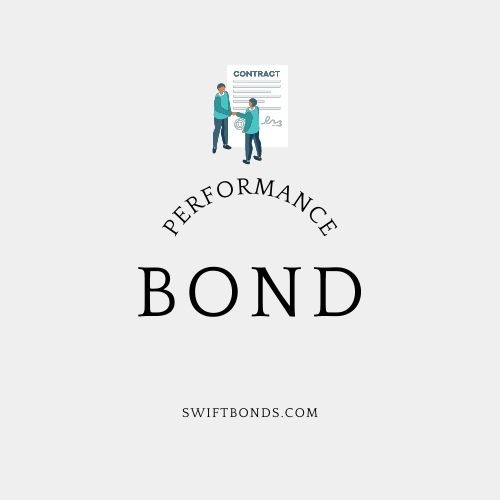You can now apply online for a Performance Bond – it only takes three (3) minutes! (Yep, we timed it.) Click here:
Or you Can download our Express Performance Bond Application (click to download form)
- Complete the form and email to [email protected]
- Be sure to include the Contract and Notice of Award letter (bid specs from the obligee).
- Send the bid results if you have them
Secure your project’s success with our reliable construction performance bond today!
Understanding Surety Bonds
A surety bond is a three-party contract involving the surety, principal, and obligee. This bond serves as a promise that the surety will be liable for the debt, default, or failure of the principal to meet their obligations. Surety bonds are often mandated by government agencies, businesses, and individuals to ensure adherence to regulations, laws, and contractual obligations. They provide financial protection to the obligee, ensuring that if the principal fails to fulfill their duties, the surety will step in to cover the loss.
Types of Surety Bonds
Surety bonds can be broadly categorized into contract surety bonds and commercial surety bonds. Contract surety bonds are specifically designed for construction projects and include bid bonds, performance bonds, payment bonds, and maintenance bonds. These bonds ensure that contractors adhere to the terms of their contracts and complete projects as agreed.
On the other hand, commercial surety bonds cover a wide range of obligations and can be divided into several types:
- License and Permit Bonds: Required for obtaining licenses and permits, ensuring compliance with laws and regulations.
- Court Bonds: Used in legal proceedings, including probate bonds and trustee bonds, to guarantee the performance of fiduciary duties.
- Fidelity Bonds: Protect businesses from losses due to employee dishonesty.
- Miscellaneous Bonds: Cover various other obligations not classified under the above categories.
Secure your project’s success with our reliable construction performance bond today!

Difference between Surety Guarantee and Performance Bond?
A surety bond can be used to describe all types of instruments, but in general “surety“ means that it shows an agreement or contract. Performance bonds are specific types of these agreements with pre-planned outcomes already included within them. Performance and payment bonds are typically required together in construction contracts to ensure quality work and payment to subcontractors and suppliers.
What is a Performance Construction Bond?
A performance bond guarantees that the contractor will complete the work as specified in the contract. It also ensures that if there are any delays or problems, you can be compensated for your losses.
Swiftbonds offers performance bonds to help protect you from unforeseen circumstances on projects such as these. Contact us today for more information!
What is the difference between Performance Guarantees and Performance Bonds?
Bonds are a type of financial instrument that takes on the risk for an event. Performance bond guarantees ensure contractors deliver quality work and fulfill contract obligations, protecting clients from non-compliance. The bank will pay you regardless if there’s non-performance in any contracts, whereas with guarantees they’re involved only when performance does not happen as agreed upon by contract terms. Project owners typically accept both bonds from banks or insurance companies to ensure work gets done right!
What is a Performance Surety Bond Guarantee?
To ensure that a contractor completes designated projects, banks and insurance companies will often provide performance bonds. Performance bonds are issued to one party of the contract as a guarantee against failure on behalf of another party to meet obligations specified in the contract. See our What is a Performance Bond and Labor and Material Payment Bond?
The cost of a Performance Bond is typically 3% or less of the contract price. Premiums may be higher for projects with lower values or contractors who have bad credit scores. View our What is a Performance Bond on a Construction Project?
What happens when a performance bond is called?
If the obligee declares that the principal is in default and terminates their contract, they can call on the surety to meet their obligation under a performance bond.
Why is a performance bond required?
A performance bond ensures that contractors complete their work in an adequate time frame. These bonds are usually additional to contractor license bonds and can be used as evidence of the quality of contract completion if any disputes arise between your company and the contractor.
How long does a performance bond last?
This information can be found on the renewal notice with a reminder about when it will happen and what options exist for renewing, including whether or not there are any lower rates available at this time.
When can you release a performance bond?
Generally, as a rule, the discharge date for a performance bond should either be after practical completion or made good to any defects. Read a How Long Does a Performance and Payment Bond Last?
Who pays for a performance guarantee?
If the Contractor defaults, or fails to honor their obligations, the Owner/Employer may call on an insurance company in order to complete their project. The Insurer then agrees with them how much money they will need for finding and hiring another contractor so that work can continue as planned.
Is a performance guarantee a contractual obligation?
Performance guarantees are contracts that ensure the performer will complete obligations as promised. In case of default, a guaranteed loss is compensated by the bank.
How do performance guarantees work?
The Obligor is the contractor who agreed to perform in accordance with the construction contract’s terms. If they cannot find another contractor to finish a job, then they will pay damages (usually monetary) to the Obligee – which can be an owner of property or project.
How do I get a performance guarantee?

In order to secure a performance bond, you’ll need collateral for the surety agency. The bank or insurance company will be your “surety”. To get one of these bonds from an agent requires that they have been around long enough and have experience with this type of work before being able to give it out.
What is the value of performance guarantee in a contract?
The performance guarantee is the amount a company promises to pay in case it loses the contract. Get a What is Cost of a Construction Performance Bond?
Note – a performance guarantee is different than a warranty bond.
Contact us for more on Performance Bond vs Bid Bond
Be sure to check out more at Swiftbonds.com


